Politics
Discurso do presidente António Costa na sessão de abertura do Primeiro Fórum de Investimento União Europeia-Brasil
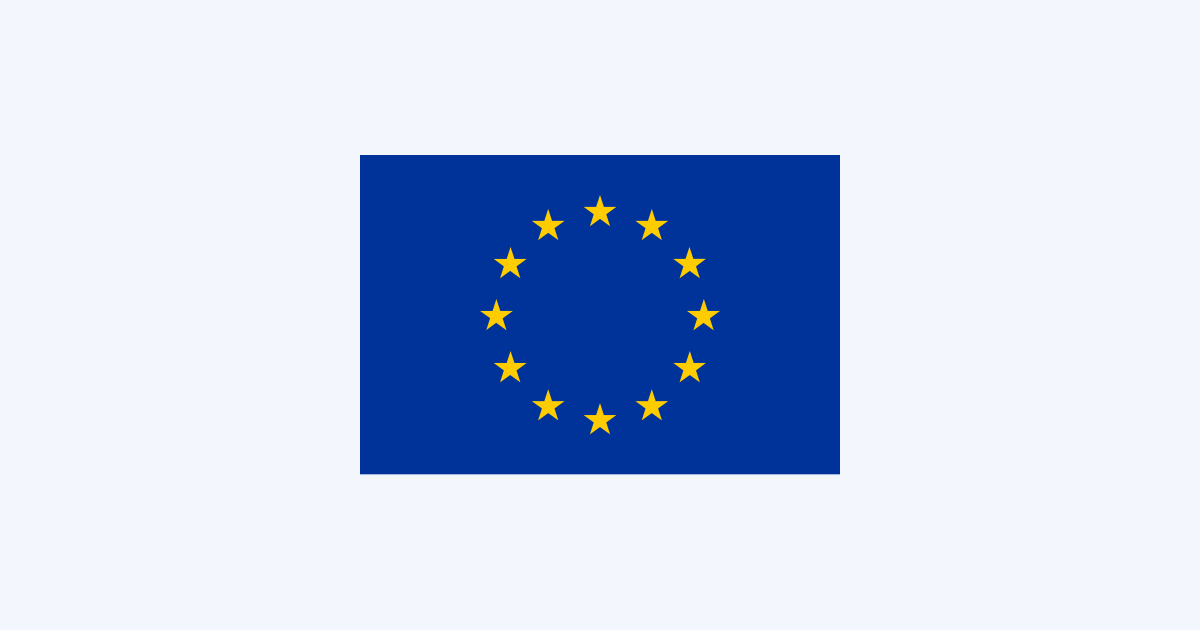
DISCLAIMER OPINIONS: The opinions of the authors or reproduced in the articles are the ones of those stating them and it is their own responsibility. Should you find any incorrections you can always contact the newsdesk to seek a correction or right of replay.
DISCLAIMER TRANSLATIONS: All articles in this site are published in English. The translated versions are done through an automated process known as neural translations. If in doubt, always refer to the original article. Thank you for understanding.
DISCLAIMER PHOTOS: We mostly used photos images that are readily available online, from free sources, or from the people promoting the news. If by any chance it happens that we have used one of your copyrighted photos, please do not hesitate to contact us and we will take it down without question. We do not make profits as this is a not for profit project to give voice to the voiceless while giving them a platform to be informed also of general news, and it is completely free.
Politics
EU Condemns Georgia’s Foreign Agents Law as Democratic Setback
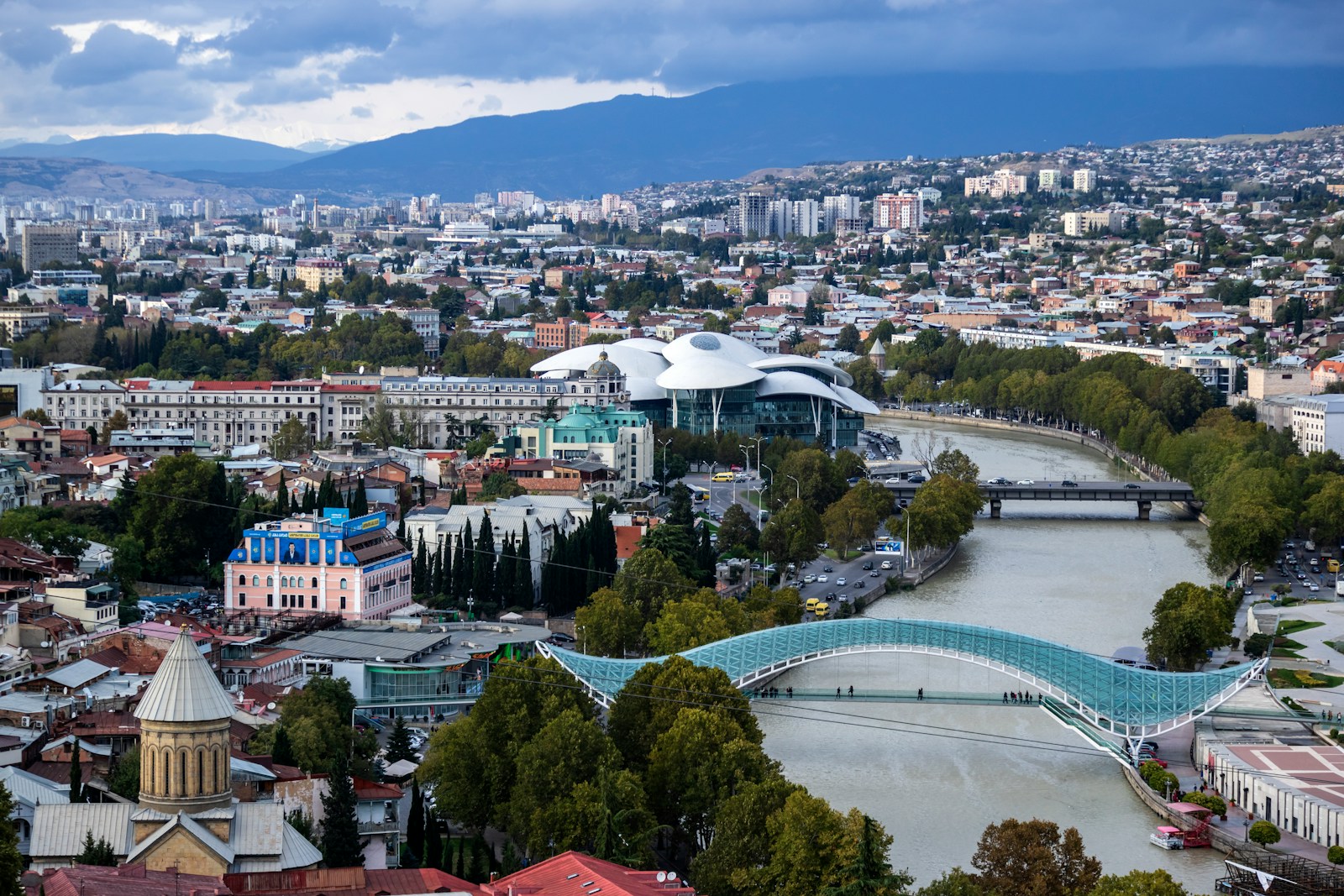
BRUSSELS — The European Union has issued a sharp rebuke of Georgia’s recent adoption of the Foreign Agents Registration Act , calling it a “serious setback for the country’s democracy” and warning that Tbilisi’s European aspirations are now in jeopardy.
In a joint statement released today, EU High Representative for Foreign Affairs and Security Policy/Vice-President of the European Commission Kaja Kallas and Commissioner for Equality Marta Kos condemned the legislation, which mirrors similar repressive laws in Russia and other authoritarian regimes.
“Georgia’s Foreign Agents Registration Act marks a serious setback for the country’s democracy,” the statement read. “Alongside recent laws on broadcasting and grants, it represents another aggressive action by the Georgian authorities to suppress dissent, restrict freedoms, and further shrink the space for activists, civil society, and independent media.”
The law, which requires non-governmental organizations (NGOs) receiving foreign funding to register as “foreign agents,” has drawn widespread criticism from international human rights groups, local activists, and diplomatic missions in Georgia.
The European Council had previously expressed concern over Georgia’s democratic backsliding in its June and October 2024 conclusions , noting that such actions jeopardized the country’s path toward European Union membership. Since then, the EU said, accession talks have effectively been put on hold.
“The accession process has been de facto halted,” the EU reiterated in today’s statement. “The EU reiterates its call on the Georgian authorities to heed their citizens’ clear demands for democracy and a European future.”
The statement also urged the release of all unjustly detained journalists, activists, protesters, and political leaders who have faced increasing pressure under the current administration.
The EU made clear that the responsibility for reversing this democratic decline rests solely with the Georgian government.
“The EU is ready to consider the return of Georgia to the EU accession path if the authorities take credible steps to reverse democratic backsliding,” Kallas and Kos stated.
The joint message underscores the bloc’s deepening frustration with Georgia’s trajectory at a time when many of its citizens continue to express strong support for integration with Europe.
As the EU stands firm on its conditionality, the question remains whether Georgia’s leadership will respond to domestic and international calls for reform—or continue down a path that risks isolating the country both politically and economically.
Joint Statement by High Representative/Vice-President Kaja Kallas and Commissioner Marta Kos on Georgia’s Foreign Agents Registration Act
Source link
Politics
Europe and Brazil Forge a New Economic Alliance: A Strategic Bet on Stability, Sustainability, and Shared Values
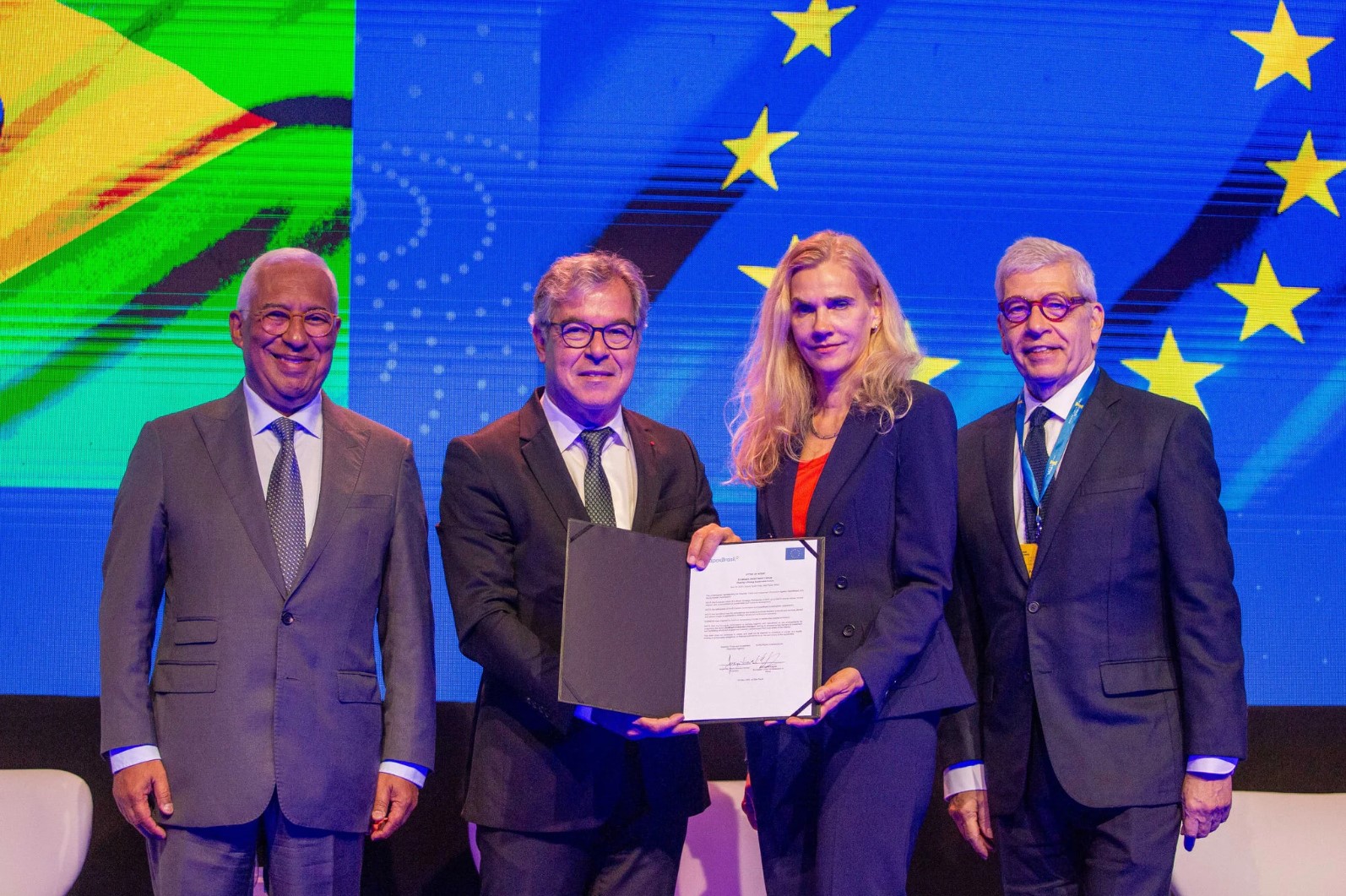
In a landmark speech delivered at the opening of the First EU-Brazil Investment Forum in São Paulo, European Council President António Costa laid out a compelling vision for a deepening economic alliance between the European Union and Brazil. Framed against a backdrop of global uncertainty—marked by geopolitical tensions, climate challenges, and shifting trade dynamics—the address underscored not only the strength of existing ties but also the vast potential for future collaboration.
The forum, held in Brazil’s economic powerhouse, was more than symbolic—it was strategic. As Costa noted, “This is the first Forum, but it follows a very long-standing relationship between Brazil and the European Union,” recalling that the two have been strategic partners since 2007. But what made this moment historic, he emphasized, was the mutual recognition that the time has come to transform that partnership into a robust geoeconomic force.
“When the outlook is uncertain, inaction is not an option,” said Costa. “But when the foundation is solid, we just need to move forward with confidence.”
A Partnership Built on Resilience and Growth
Despite global disruptions—from the pandemic to the war in Ukraine—the EU and Brazil have maintained a resilient economic relationship. According to data cited by Costa, bilateral trade grew by 65% over the past five years, and the EU remains Brazil’s second-largest trading partner, its largest foreign investor, and the top destination for Brazilian outbound investment.
European companies account for 39% of all foreign direct investment (FDI) in Brazil, outpacing investments from the U.S., China, and other regions. Since 2020, EU FDI in Brazil has grown at an annual rate of 11%, and today, Brazil ranks as the fourth-largest recipient of EU investment globally.
“Brazil is now the fourth largest destination of EU direct investment,” Costa stated. “And reciprocally, the EU is the main destination for Brazilian investment abroad, representing 35% of Brazil’s total foreign direct investment.”
The Mercosur Agreement: A Game-Changer in the Making
At the heart of this new phase is the recently concluded EU-Mercosur trade agreement, which Costa described as “a game-changer” for both sides. The deal, finalized in December 2024 after two decades of negotiations, will create the world’s largest free-trade zone, covering over 720 million people and nearly 20% of global GDP.
“The EU-Mercosur agreement will eliminate 90% of customs tariffs,” Costa explained. “It will reinforce our regions as a geoeconomic epicenter for global trade and investment.”
According to estimates from ApexBrasil (the Brazilian Agency for Promotion of Exports and Investments), the agreement could boost Brazilian exports to Europe by 10% within four years, particularly in agriculture, manufacturing, and green technologies. Broader trade flows are projected to grow by more than 30% by 2035, offering a stabilizing influence amid rising protectionism and unilateralism.
Greening the Future Together
One of the most ambitious aspects of the agreement is its commitment to sustainability. The EU has pledged €1.8 billion through its Global Gateway strategy to support a just ecological and digital transition in Mercosur countries, with particular focus on renewable energy, low-carbon steel production, and sustainable industrial value chains.
“We want to build industries capable of facing the future—with quality investments, high standards, local value creation, and decent jobs in renewable energies,”
Costa declared
The emphasis on green cooperation reflects shared priorities, especially as both blocs prepare to host major global summits later this year. Brazil will host COP30 in Belém , while the EU will co-host a summit with the Community of Latin American and Caribbean States (CELAC) in Colombia. These events offer opportunities to align climate policies and showcase how democratic societies can lead the way in decarbonization and biodiversity preservation.
A Message Against Isolationism
Costa’s speech was not only about economics—it was also a clear political statement. In a world increasingly defined by fragmentation and inward-looking policies, the EU and Brazil are positioning themselves as champions of multilateralism, rule-based trade, and open societies.
“Trade should be used to build bridges and prosperity—not walls and poverty,” Costa asserted.
He warned against unilateral tariff hikes and protectionist tendencies that distort markets and burden consumers. Instead, he called for renewed faith in international institutions and cooperative frameworks that uphold shared values such as territorial integrity, the rule of law, and democratic governance.
Strengthening the Middle Class Through Innovation and Integration
Beyond macroeconomic figures, Costa stressed the human dimension of this partnership. He argued that the EU-Brazil alliance must strengthen the middle class—a bulwark of social cohesion and democratic stability—by creating high-quality jobs, supporting innovation, and investing in education and public services.
“Democracy without a strong middle class, social justice, and a sustainable economy is fertile ground for populism and radicalism,” he warned.
To this end, the EU is expanding its presence in Brazil across sectors like digital transformation, clean technology, and scientific research. With academic freedom under threat in some parts of the world, Costa suggested that Brazil and the EU could jointly attract top talent and become leaders in cutting-edge innovation.
Looking Ahead: A Long-Term Vision
The First EU-Brazil Investment Forum marked more than a milestone—it signaled the beginning of a new chapter. Costa expressed optimism that the momentum would continue with a planned EU-Brazil Summit before the end of 2025, and further dialogues between public and private stakeholders.
“This first Forum strengthens our most precious common resource: mutual trust,” he concluded. “Trust from Brazil in the EU—and from the EU in Brazil.”
As the Atlantic winds continue to connect Europe and South America, the promise of a more integrated, stable, and sustainable future is no longer a distant dream—but a tangible goal being built one partnership at a time.
Source link
Politics
EU Lifts Economic Sanctions on Syria in Historic Move to Support Recovery and Transition
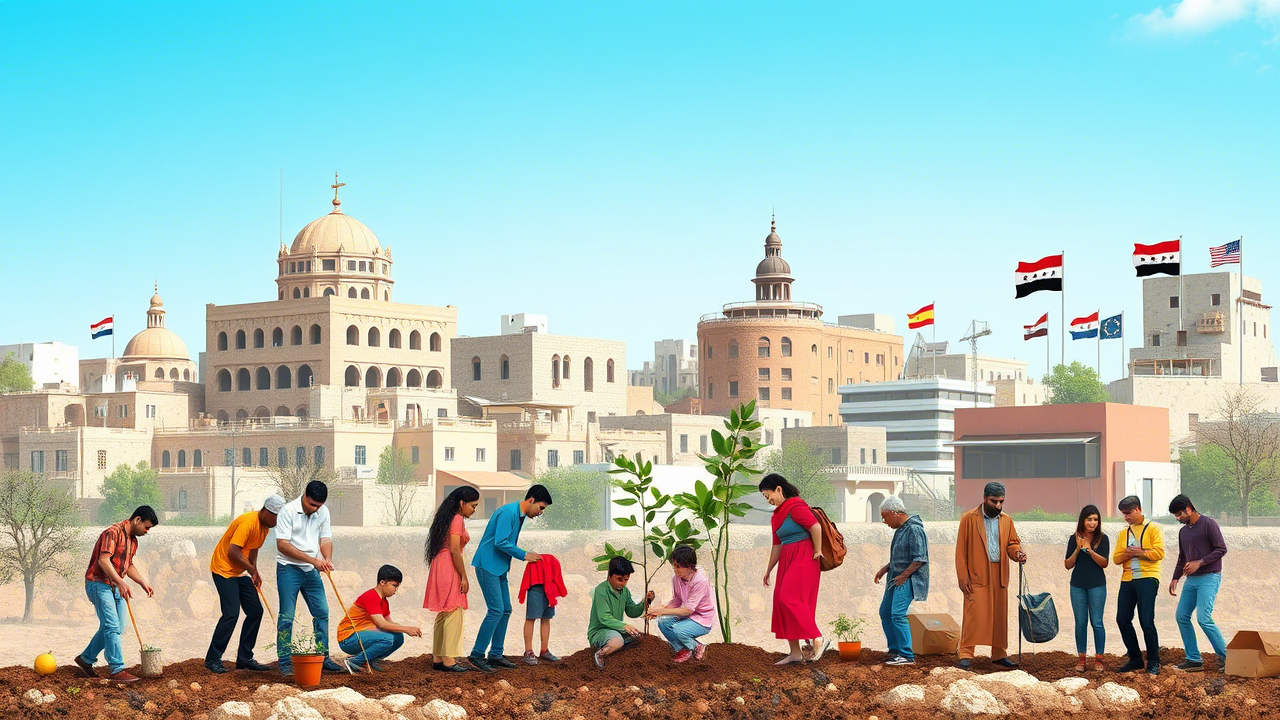
In a landmark decision that marks a dramatic shift in its policy toward Syria, the European Union has formally lifted nearly all economic sanctions against the country following the fall of the Assad regime earlier this year. The Council of the EU announced the move on Tuesday, adopting legal acts that implement a political agreement reached just days earlier on May 20, aimed at supporting Syria’s transition toward a peaceful, inclusive future.
The decision removes all economic restrictive measures imposed on Syria over the past decade—except those related to ongoing security concerns—and takes effect as part of a broader effort to stabilize the war-torn country and support its reconstruction. It also includes the removal of 24 entities from the EU’s sanctions list, among them key institutions such as the Central Bank of Syria and companies operating in critical sectors like oil, cotton, and telecommunications.
A New Chapter After 14 Years of Conflict
For over 14 years, the EU maintained some of the strongest international sanctions against Syria, targeting the regime of Bashar al-Assad for its brutal crackdown on dissent and widespread human rights abuses. These included bans on oil imports, restrictions on financial services, and asset freezes on hundreds of individuals and entities tied to the former government.
However, with the collapse of the Assad regime in early 2025—sparked by mass protests, internal military defections, and regional shifts—the EU began recalibrating its approach. In February, it took the first step by easing certain sanctions to allow for limited engagement with transitional authorities and humanitarian actors. The latest decision formalizes that pivot, signalling the EU’s readiness to become a major partner in Syria’s recovery.
“This is simply the right thing to do, at this historic time,” said Kaja Kallas, the EU’s High Representative for Foreign Affairs and Security Policy, who presided over the announcement. “The EU has stood with the Syrian people throughout the last 14 years, and it will continue to do so. Today we reaffirm our commitment as a partner for the transition, one that helps the Syrian people reunite and rebuild a new, inclusive, peaceful Syria.”
Accountability Remains a Priority
Despite the lifting of economic sanctions, the EU has not abandoned its stance on accountability. The Council extended until June 2026 the listings of individuals and entities linked to the former Assad regime, ensuring that those responsible for atrocities during the conflict remain under scrutiny.
Additionally, in response to a wave of violence that erupted in Syria’s coastal region in March 2025—widely believed to have been orchestrated by remnants of pro-regime militias—the EU introduced new human rights sanctions under its Global Human Rights Sanctions Regime. Two individuals and three entities were added to the list for their involvement in serious human rights violations.
“The EU continues to call for justice and accountability for the crimes committed over the past decade,” Kallas emphasized. “We are ready to engage with Syria’s new authorities, but only if they commit to democratic values, human rights, and regional stability.”
Rebuilding Amid Ruins
The decision comes at a pivotal moment for Syria, which faces one of the most complex post-conflict environments in modern history. Over half a million lives have been lost, and more than half the population displaced since the war began in 2011. Infrastructure lies in ruins, the economy is shattered, and public trust in governance remains fragile.
The EU has already pledged significant aid to support stabilization efforts, including funding for basic services, refugee returns, and civil society initiatives. With sanctions lifted, European companies may now re-engage in Syria’s economy under strict monitoring, potentially unlocking investment in energy, agriculture, and infrastructure projects.
Yet experts caution that the road ahead is fraught with challenges. Syria remains deeply fragmented, with multiple armed groups still active and external powers—including Iran, Turkey, and Russia—maintaining strong influence. Moreover, the transitional government has yet to fully consolidate authority or establish broad-based legitimacy.
“Lifting sanctions is a necessary step, but not sufficient,” said Dr. Rana Foroohar, a Middle East analyst at the European Council on Foreign Relations. “The EU must ensure that aid and investment reach ordinary Syrians—not just elites or foreign interests. And it must maintain pressure on human rights issues without undermining the delicate political process.”
Regional and International Reactions
The move has drawn mixed reactions across the region. While some Arab states have welcomed the EU’s return to diplomatic and economic engagement, others remain wary of premature normalization with Damascus before full political reforms are implemented.
Russia, which backed the Assad regime until its collapse, called the EU’s decision “pragmatic” and urged further international cooperation in rebuilding Syria. Meanwhile, human rights organizations have expressed concern that easing sanctions too quickly could embolden authoritarian remnants and undermine justice mechanisms.
The United Nations has reiterated its call for a “Syrian-led, UN-facilitated” political process to lead the country toward elections and constitutional reform. The EU says it will support these efforts through both diplomatic and financial means.
With the legal texts set to be published in the Official Journal of the European Union in the coming days, the focus now turns to implementation. The EU will closely monitor developments on the ground, ready to reintroduce sanctions should instability or human rights violations escalate.
As Syria begins to emerge from the shadows of war, the EU’s decision represents both a gamble and an opportunity—a chance to help steer the country toward peace, while navigating the complex realities of power, justice, and foreign influence.
For the millions of Syrians who have endured over a decade of conflict, the hope is that this new chapter brings not just aid and investment, but lasting freedom and dignity.
Following its political announcement on 20 May, the Council lifted the EU’s economic sanctions on Syria imposed ontothe Assad regime. It also removed 24 entities from the EU list of those subject to the freezing of funds and economic resources. In parallel, it extended the listings of individuals and entities linked to the Assad regime until 1 June 2026.In support of the transitional authorities’ efforts to safeguard the human rights and fundamental freedoms of all Syrian people, the Council also imposed new restrictive measures on two individuals and three entities for human rights abuses and stands ready to consider further listings on those fuelling instability.
Source link
-

 EU & the World4 days ago
EU & the World4 days agoArabella Stanton: 5 Things to Know About the Actress Playing Hermione
-

 EU & the World4 days ago
EU & the World4 days agoWho Is Mary Lou Retton? About the Olympic Gymnast
-
EU & the World5 days ago
Phil Robertson’s Children: How Many Kids Did the ‘Duck Dynasty’ Star Have?
-

 EU & the World3 days ago
EU & the World3 days agoWhat Is Kevin Costner’s Net Worth? How Much the Actor Makes
-

 EU & the World3 days ago
EU & the World3 days ago‘Survivor’ Season 50 Cast: See Which Stars Are Competing
-
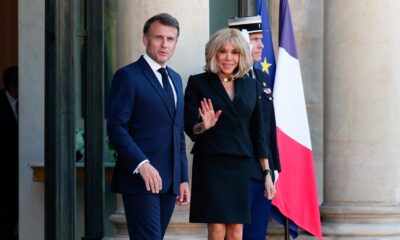
 EU & the World4 days ago
EU & the World4 days agoDoes Emmanuel Macron Have Children With Wife Brigitte?
-
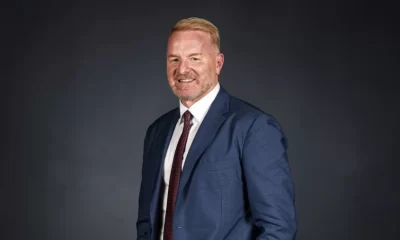
 Sports6 days ago
Sports6 days agoIgli Tare is Milan’s new sporting director
-

 Sports7 days ago
Sports7 days agoPlayoff Serie B: Juve Stabia overwhelmed, Cremonese in final








